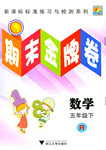题目内容
Mrs.. Green sees an ad(广告) in a newspaper for a nice bed in a shop. It costs 100 dollars. Mrs.. Green likes it, so she goes to the shop. The shopkeeper shows one to her. Mrs.. Green has a look at it and says, “There aren’t any beautiful pillows(枕头)on this bed, but there are many on the bed in your ad.”
“Yes, madam, that is an ad,” answers the shopkeeper. “If you want a bed the same as the one in the ad, you need to pay 10 dollars more.”
Mrs. Green isn’t happy. Then she says, “That’s dishonest.”
“Well, madam,” answers the shopkeeper. “Look, there is a girl on a bike in an ad in your newspaper too, but can you buy the bike with the girl?”
小题1:How does Mrs. Green know about the bed?
小题2:How much does the bed with the pillows cost?
小题3:What does “dishonest” mean?
小题4:Who is Mrs. Green?
“Yes, madam, that is an ad,” answers the shopkeeper. “If you want a bed the same as the one in the ad, you need to pay 10 dollars more.”
Mrs. Green isn’t happy. Then she says, “That’s dishonest.”
“Well, madam,” answers the shopkeeper. “Look, there is a girl on a bike in an ad in your newspaper too, but can you buy the bike with the girl?”
小题1:How does Mrs. Green know about the bed?
| A.From an ad on TV. |
| B.From one of her friends. |
| C.From an ad in a newspaper. |
| D.From the shopkeeper. |
| A.100 dollars. | B.110 dollars. |
| C.50 dollars. | D.60.dollars. |
| A.不公平的 | B.不诚实的 | C.不美观的 | D.小气的 |
| A.She is a student. |
| B.She is a shopkeeper of another shop. |
| C.She is a customer. She wants to buy a bed. |
| D.She is a worker in a bike shop. |
小题1:C
小题2:B
小题3:B
小题4:C
试题分析:这篇文章讲述了格林太太看到一张非常好看的有关床的广告,价值100美金,于是她去店子里面买,但是,店主说包含枕头需要额外支付10美金。格林太太很生气,认为那是不诚实的,店主却反倒说格林太太的无理。
小题1:细节题。根据文章Mrs Green sees an ad(广告) in a newspaper for a nice bed in a shop.格林太太在报纸上看到了一张非常好看的床的广告。故选C
小题2:细节题。根据文章可知,这张的床的价格是100美金,如果想要枕头的话,只需额外支付10美金,所以,总共是110美金。故选B
小题3:推断题。根据文章大意,格林太太以为床和枕头总共是100美金,实际上不包含枕头,所以她认为那是不诚实的。故选B
小题4:细节题。根据文章可知,格林太太是一个顾客,她想买床。故选C
点评:文章主旨鲜明,主要讲述了格林太太的一次购物经历,题目设置全为细节题。对于细节题是很好解答的题目,只需在文章题目中找到关键字在文章中找到对应的出处,再仔细对比得出正确的答案。

练习册系列答案
 海淀课时新作业金榜卷系列答案
海淀课时新作业金榜卷系列答案 期末金牌卷系列答案
期末金牌卷系列答案 轻松课堂标准练系列答案
轻松课堂标准练系列答案
相关题目